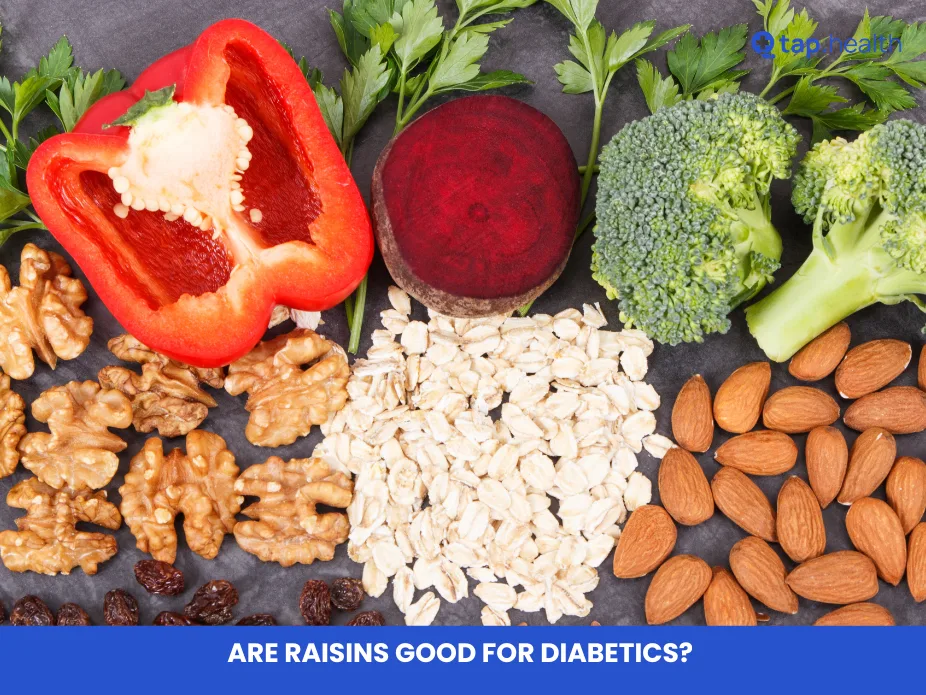Table of Contents
- Protein Shakes & Diabetes: A Weight Loss Guide
- Managing Diabetes? Explore Protein Shakes for Weight Loss
- Best Protein Shakes for Weight Loss with Diabetes: Top Picks
- Diabetes-Friendly Protein Shakes: Benefits and Precautions
- How Protein Shakes Can Support Your Diabetes Weight Loss Journey
- Frequently Asked Questions
- References
Managing diabetes can feel like a constant balancing act, and weight management is often a key part of that equation. If you’re looking for ways to support your health journey, you might be considering protein shakes. This blog post dives into the world of Protein Shakes for Diabetes: Weight Loss Benefits and Considerations, exploring how these supplements can potentially aid in weight loss while addressing the unique needs of individuals with diabetes. We’ll examine the pros and cons, offering practical advice and helping you make informed choices. Let’s get started!
Protein Shakes & Diabetes: A Weight Loss Guide
Managing diabetes in hot and humid climates like those prevalent in India and other tropical countries presents unique challenges. Weight management is crucial, and protein shakes can be a valuable tool, but careful consideration is key. Many individuals with diabetes need to manage their carbohydrate intake, often aiming for 45–60 grams per meal, a range that varies depending on individual needs and prescribed medication. This means choosing protein shakes wisely.
Choosing the Right Protein Shake
Look for low-carbohydrate, high-protein options. Whey protein is a popular choice, offering a quick and easy way to boost protein intake. However, soy protein or plant-based protein blends are also suitable alternatives, particularly for those with lactose intolerance, a consideration for many in the region. Always check the nutritional label meticulously, paying close attention to the total carbohydrate content and the type of carbohydrates present (simple vs. complex). Avoid shakes loaded with added sugars, which can significantly impact blood glucose levels.
Incorporating Protein Shakes into Your Diet
Protein shakes shouldn’t replace meals entirely. Instead, they can be used strategically as a meal replacement or a supplement to boost protein intake after exercise or during periods when you find it challenging to consume sufficient protein through whole foods. Remember to integrate them into a balanced diet that includes fruits, vegetables, and whole grains suitable for diabetes management. For more detailed guidance on creating a diabetes-friendly diet plan, see our article on How to Lose Weight with Diabetes Diet Plan. Consulting a nutritionist or a doctor specializing in diabetes management is highly recommended to create a personalized plan tailored to your specific needs and dietary preferences.
Actionable Steps for Indian & Tropical Climates
In warmer climates, staying hydrated is crucial. Ensure you drink plenty of water throughout the day, especially when using protein shakes. Consider incorporating cooling, hydrating fruits and vegetables into your diet alongside your protein shake for optimal results. Remember, a holistic approach – combining a balanced diet, regular exercise, and mindful hydration – is the most effective way to manage diabetes and achieve sustainable weight loss. Before making significant dietary changes or adding supplements, it’s important to consult your doctor or a registered dietitian for personalized guidance. For further information on safe supplement use, you may find our guide on Safe and Effective Dietary Supplements for Diabetes Care helpful.
Managing Diabetes? Explore Protein Shakes for Weight Loss
Managing diabetes effectively often involves careful attention to diet and weight management. A significant factor contributing to the development of diabetes is the consumption of sugary beverages; research shows that daily consumption raises diabetes risk by 26%. This highlights the importance of making healthy choices, and protein shakes can play a beneficial role in weight loss strategies for individuals with diabetes in India and tropical countries.
Choosing the Right Protein Shake
Protein shakes can be a valuable tool for weight management because they help you feel full, reducing overall calorie intake. However, it’s crucial to select shakes carefully. Opt for those low in sugar and carbohydrates, focusing on high-protein sources like whey, soy, or casein protein. Many readily available options in Indian markets offer these benefits, often incorporating ingredients common in regional diets. Pay close attention to the label, ensuring the sugar content is minimal. Consider shakes with added fiber for improved satiety and blood sugar control. Remember that managing your overall health is key, and that includes managing stress. For helpful tips, check out our article on Effective Stress Management Tips for Better Diabetes Control.
Considerations for Tropical Climates
In hot and humid climates prevalent across India and other tropical regions, staying hydrated is paramount. Ensure you drink plenty of water alongside your protein shake. Also, consider the potential for quicker spoilage of protein shakes in warmer temperatures; prioritize refrigerated storage and choose products with longer shelf lives. Remember to consult your doctor or a registered dietitian before incorporating protein shakes into your diabetes management plan to ensure they align with your individual needs and health status. For more comprehensive advice on diabetes management, you might find our guide, 10 Proven Tips for Effective Diabetes Management, helpful.
Take the Next Step
Ready to explore how protein shakes can support your weight loss goals while managing your diabetes? Consult a healthcare professional to create a personalized plan that works best for you. They can provide guidance on appropriate shake selection and integration within your overall dietary approach.
Best Protein Shakes for Weight Loss with Diabetes: Top Picks
Choosing the right protein shake can significantly aid weight management for individuals with diabetes, especially in regions like India and other tropical countries where dietary habits often need adjustments. Managing diabetes effectively is crucial, considering that 6.7 million people died from diabetes globally in 2021, highlighting the urgency for proactive health management. This underscores the importance of selecting protein shakes carefully, focusing on ingredients and nutritional profiles.
Key Considerations for Choosing a Protein Shake
When selecting a protein shake for weight loss with diabetes in tropical climates, prioritize low glycemic index (GI) options. High-GI shakes can lead to rapid blood sugar spikes, counteracting weight loss efforts. Look for shakes with protein sources like whey isolate (low lactose), soy protein (consider allergies), or plant-based options like pea or brown rice protein. Pay close attention to added sugars; opt for shakes with minimal or natural sweeteners like stevia. In India and many tropical countries, natural sweeteners like jaggery (gur) are readily available and can be a healthier alternative in moderation. For more ideas on healthy food choices, check out 20 Best Foods for People with Diabetes – Tap Health.
Top Protein Shake Recommendations
While specific brands vary regionally, prioritize shakes with high protein content (20-30 grams per serving), low carbohydrates, and minimal added sugars. Always check labels for ingredients and nutritional information, paying special attention to the carbohydrate and sugar content. Consider shakes enriched with fiber to improve satiety and aid in blood sugar regulation. Look for protein shakes that are fortified with essential vitamins and minerals, particularly beneficial in regions with potential nutrient deficiencies. In addition to protein shakes, incorporating healthy juices can also be beneficial. See 12 Best Juices for Diabetes to Control Blood Sugar Level for more information.
Conclusion
Making informed choices about your protein shake can contribute significantly to your overall health and weight management journey. Consult a doctor or registered dietitian to determine the best protein shake and dietary plan for your individual needs, especially considering the unique nutritional requirements in Indian and tropical climates. Remember, consistent healthy eating habits and regular exercise are vital components of effective diabetes management.
Diabetes-Friendly Protein Shakes: Benefits and Precautions
Managing diabetes in hot and humid climates like those prevalent in India and other tropical countries presents unique challenges. Maintaining healthy blood sugar levels is crucial, and incorporating protein shakes into your diet can be beneficial, but requires careful consideration. Remember, ideal pre-meal blood sugar levels should be between 80–130 mg/dL, and post-meal levels should remain below 180 mg/dL.
Benefits of Protein Shakes for Diabetes Management
Protein shakes can aid in weight management, a key factor in diabetes control. They provide a feeling of fullness, reducing overall calorie intake and helping to prevent blood sugar spikes after meals. Choosing protein sources like whey, soy, or those derived from lentils and other pulses commonly found in Indian cuisine, can further optimize their impact. These plant-based options are often lower in saturated fat and can help manage cholesterol levels, another important aspect of diabetes management. The sustained release of amino acids from protein also helps regulate blood sugar levels more effectively than carbohydrate-rich foods. For more ideas on managing your diet throughout the year, you might find our guide on Creating Diabetes-Friendly Dishes for the Holidays helpful.
Precautions and Considerations
While beneficial, protein shakes for diabetes require careful selection and monitoring. Always check the sugar content; many commercially available shakes are surprisingly high in added sugars, negating the positive effects. Opt for unsweetened varieties and consider adding natural sweeteners like stevia or a small amount of jaggery (gur) in moderation. Furthermore, the type of protein and its impact on your individual blood sugar response varies. Monitoring your blood glucose levels after consuming a protein shake is crucial to understand its effect on your body. Consult with your doctor or a registered dietitian to determine the appropriate type, amount, and timing of protein shake intake for your specific needs. They can also advise on suitable options readily available in your local markets. Remember to also consider other low-sugar options for hydration, such as those described in our article on Low-Sugar Fruit Juices for Diabetics.
How Protein Shakes Can Support Your Diabetes Weight Loss Journey
Maintaining a healthy weight is crucial for managing diabetes, especially in regions like India and other tropical countries where lifestyle factors can significantly impact the disease. Studies show that diabetes complications lead to a concerning 9-12% loss in work productivity due to absenteeism and health issues. This highlights the importance of proactive health management, including weight control. Protein shakes can be a valuable tool in this journey.
Benefits of Protein Shakes for Diabetes Weight Loss
Protein shakes offer several advantages for individuals with diabetes aiming for weight loss. Firstly, they provide a concentrated source of protein, crucial for satiety and muscle maintenance. Maintaining muscle mass is vital, as it helps boost metabolism and improves insulin sensitivity, both key factors in diabetes management. Secondly, choosing protein shakes with low carbohydrates and added sugars minimizes blood sugar spikes, a common concern for people with diabetes. Look for options made with natural ingredients, such as whey or soy protein, and avoid those laden with artificial sweeteners. In tropical climates, where fresh fruits are abundant, consider adding natural sweeteners like berries or a small amount of mango to your shake for added flavor. For those looking to gain weight safely while managing diabetes, it’s important to consider a different approach, and you can learn more in our article on How to Gain Weight with Diabetes Safely and Effectively – Tap Health.
Considerations When Choosing Protein Shakes
While protein shakes offer benefits, careful selection is essential. Always check the nutritional label, paying close attention to the carbohydrate and sugar content. Opt for shakes with a lower glycemic index (GI) to prevent rapid blood sugar fluctuations. Furthermore, consult with your doctor or a registered dietitian before incorporating protein shakes into your diet, especially if you are on other medications. They can help you determine the appropriate amount of protein and create a personalized plan that aligns with your specific health needs and dietary restrictions. Remember, a balanced diet and regular exercise remain the cornerstones of effective diabetes management. The use of Are Soya Chunks Good for Diabetes? Benefits & Recipes can also be a valuable part of a balanced diet, offering a good source of protein.
Frequently Asked Questions on Protein Shakes for Diabetes
Q1. Can protein shakes help with diabetes management?
Yes, protein shakes can be a helpful tool for managing diabetes, particularly for weight loss, but only as part of a balanced approach. They’re most effective when low in carbohydrates and high in protein.
Q2. What type of protein shake is best for people with diabetes?
Choose low-carbohydrate, high-protein shakes made with whey, soy, or plant-based protein. Always check the label carefully to minimize added sugars.
Q3. How should I incorporate protein shakes into my diabetes management plan?
Protein shakes shouldn’t replace meals. Use them as a supplement to a balanced diet that includes fruits, vegetables, and whole grains. Consult your doctor or a registered dietitian for personalized advice.
Q4. Are there any potential downsides or challenges to using protein shakes for diabetes?
Yes, improper use can lead to issues. Pay close attention to the sugar content and avoid shakes that are high in carbohydrates. Also, consider that they may spoil faster in warmer climates.
Q5. What else is important for managing diabetes besides protein shakes?
A holistic approach is vital. Combine a balanced diet, regular exercise, and sufficient hydration for sustainable weight loss and effective diabetes management. Regular checkups with your doctor are crucial.
References
- A Practical Guide to Integrated Type 2 Diabetes Care: https://www.hse.ie/eng/services/list/2/primarycare/east-coast-diabetes-service/management-of-type-2-diabetes/diabetes-and-pregnancy/icgp-guide-to-integrated-type-2.pdf
- What is Diabetes: https://www.medschool.lsuhsc.edu/genetics/docs/DIABETES.pdf



